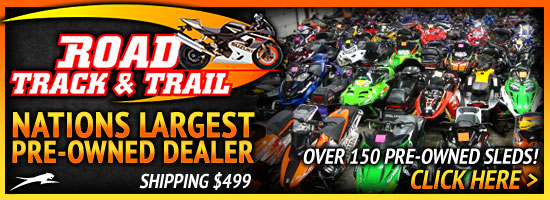Hey Everybody,
This might be a dumb question but here goes. We were coming back from a sled trip and upon entering Minnesota on interstate 94 we approached a weigh station, and on the sign it said something to the effect of "all trucks weighing over 10,000 lbs must enter" or stop or something to that effect. Does that mean just commercial trucks or does it literally mean every truck, commercial and non-commercial? Cuz the combination of my truck and enclosed trailer loaded with sleds was over 10,000 lbs.
What triggered the question was that I saw a pick up and a 4 place enclosed trailer going the opposite direction enter a weigh station.
Oh, and if I have to pull into a weigh station what happens, what are they looking for?
I guess I never paid it much mind because up until a couple of years ago I never towed that heavy or never ran into a weigh station calling out that wieght.
Any info would be appreciated, thanks everybody.
This might be a dumb question but here goes. We were coming back from a sled trip and upon entering Minnesota on interstate 94 we approached a weigh station, and on the sign it said something to the effect of "all trucks weighing over 10,000 lbs must enter" or stop or something to that effect. Does that mean just commercial trucks or does it literally mean every truck, commercial and non-commercial? Cuz the combination of my truck and enclosed trailer loaded with sleds was over 10,000 lbs.
What triggered the question was that I saw a pick up and a 4 place enclosed trailer going the opposite direction enter a weigh station.
Oh, and if I have to pull into a weigh station what happens, what are they looking for?
I guess I never paid it much mind because up until a couple of years ago I never towed that heavy or never ran into a weigh station calling out that wieght.
Any info would be appreciated, thanks everybody.

